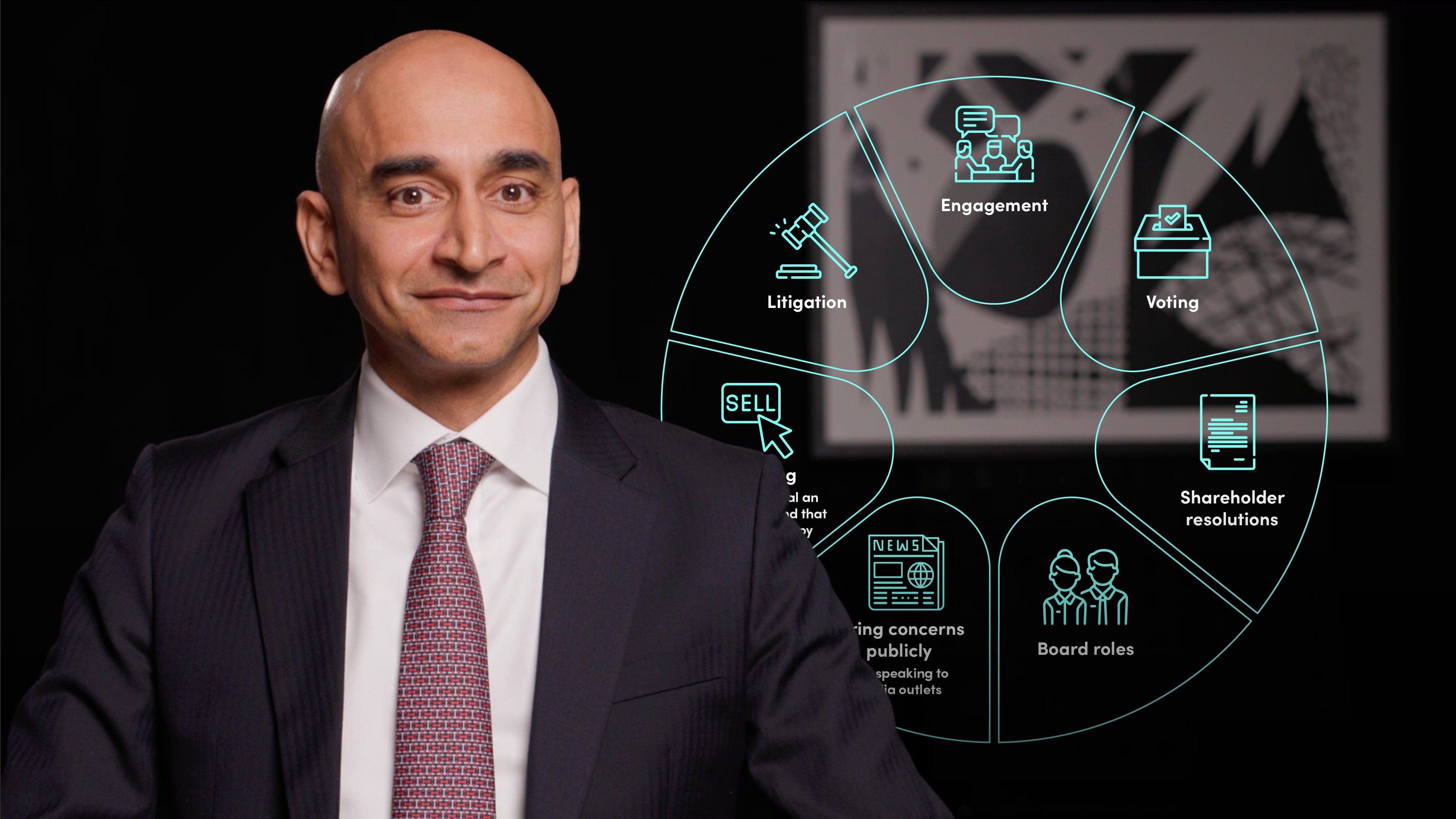
The Importance of Stewardship

Arun Kelshiker
20 years: Asset management and stewardship
In the final video of this two-part video series, Arun explains why stewardship is important. First he discusses the ways in which investors exercise stewardship across different asset classes, then he looks at the reasons for actioning stewardship, and finally he finishes by talking about the current trends within stewardship and what the future looks like.
In the final video of this two-part video series, Arun explains why stewardship is important. First he discusses the ways in which investors exercise stewardship across different asset classes, then he looks at the reasons for actioning stewardship, and finally he finishes by talking about the current trends within stewardship and what the future looks like.

The Importance of Stewardship
10 mins 12 secs
Key learning objectives:
Understand the ways through which investors action stewardship across different asset classes
Identify the reasons for actioning stewardship
Assess the future of stewardship
Overview:
Stewardship is not the same across all asset classes. Investors of different asset classes will have different levels of influence and different desired outcomes. All should use stewardship however with the intention of achieving the highest possible outcomes but also to help with societal and environmental issues. Following this, we are seeing a major shift within stewardship from governance issues only to the broader environmental, social and governance issues.
How do investors action stewardship across different asset classes?
Shareholders are increasingly expected to exercise their voting rights and input into key company decisions including director appointments and board pay.
Fixed income investors can influence issues with clearly defined legal rights.
Private equity owners often have a substantial ownership stake together with board positions. This allows them to directly influence a company given the collaborative development of a company.
Private debt holders can also employ specific deal terms to achieve their intended outcomes.
Why should investors action stewardship?
There are 4 main reasons investors should action stewardship:
- Fiduciary duty
- Regulation
- Risk management
- Universal ownership / accountability
Fiduciary duty within investing, is a person or organisation that carries a position of trust along with the legal responsibility for managing the monies of others in their best interests. Stewardship is considered to be part of an investors’ fiduciary duty.
Regulations include stewardship codes which can be voluntary or mandatory. Two popular codes in Europe include the Financial Reporting Council’s UK Stewardship Code, which was revamped in 2021, as well as the European Union Shareholder Rights Directive or SRD II, which both incorporate how stewardship is addressing ESG issues.
Investors are also incentivised to look beyond solely the interests of their individual investees and engage on systemic issues, aligned with broader sustainability outcomes and well-functioning financial markets.
Finally, a slight variation on Universal Ownership, is that investors as stewards, represent key stakeholders holding corporations accountable where regulation and governments have failed.
What trends are we seeing in stewardship?
Current approaches have highlighted the importance of collaborative action and the need to collectively come together, with one voice to achieve common goals.
In the past, stewardship efforts were generally focused on governance issues. While governance continues to remain important, we are seeing the broader Environmental, Social and Governance or ESG coming to the forefront of investors’ stewardship efforts.
We have also seen a year-on-year increase in social resolutions across the areas of diversity, equity and inclusion, greater fair pay and racial justice.

Arun Kelshiker
There are no available Videos from "Arun Kelshiker"

